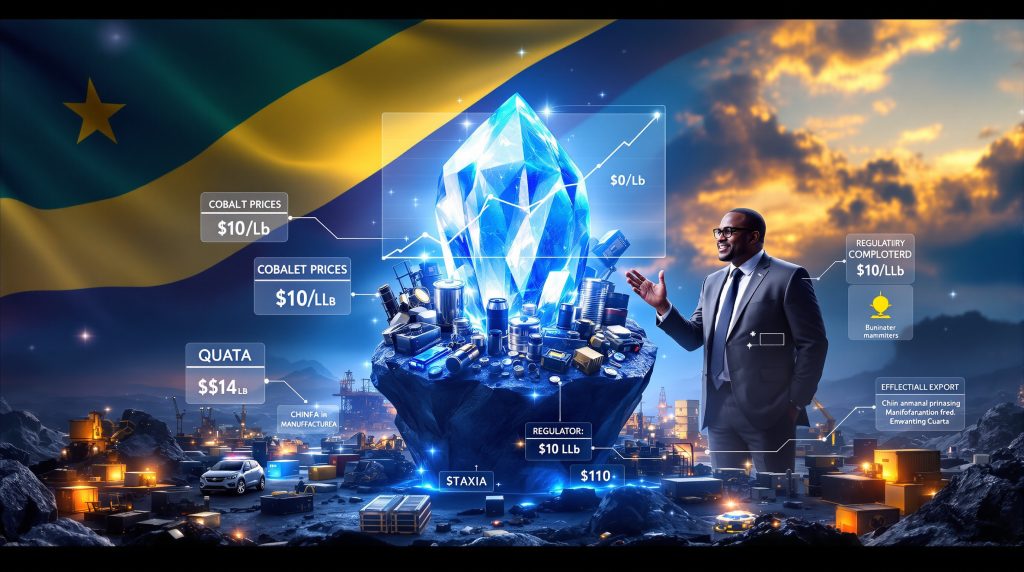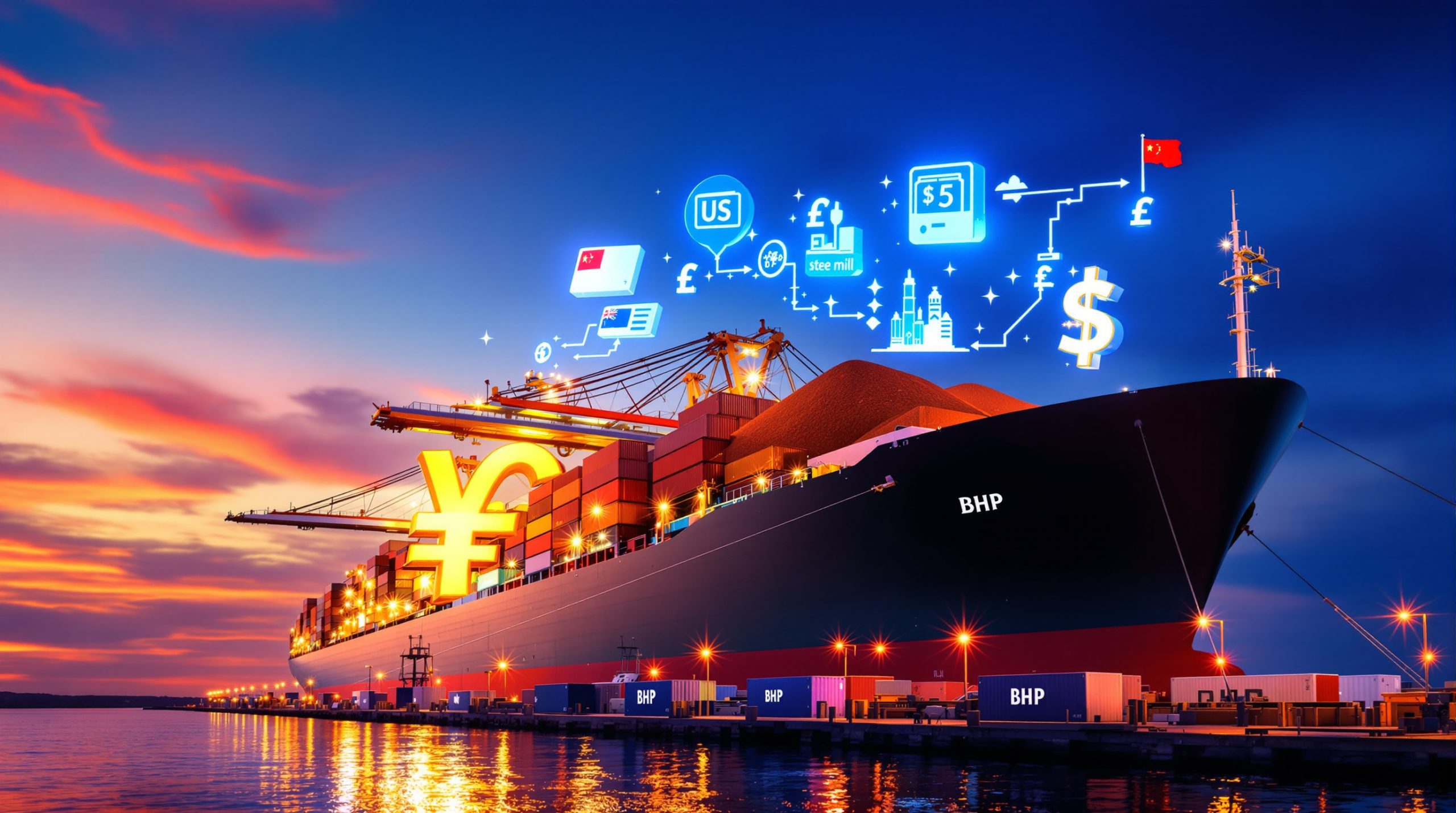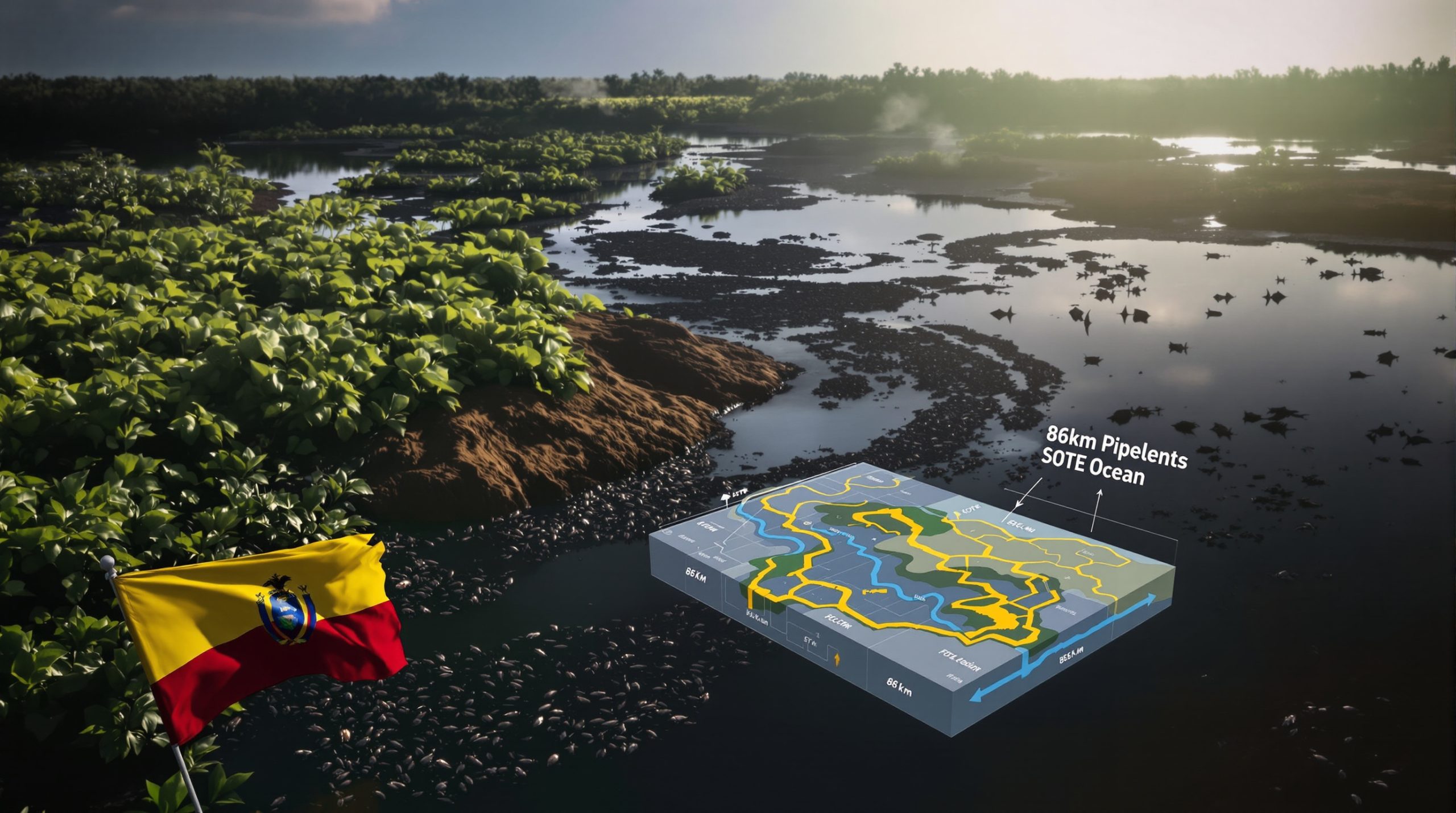Congo's Strategic Control Over Cobalt Export Quotas
The Democratic Republic of Congo (DRC) is implementing a significant policy shift by introducing a cobalt export quotas based on companies' three-year production and shipment data. This strategic move replaces the previous months-long export suspension that disrupted global supply chains. Taking effect on October 16, 2025, this quota framework aims to stabilize prices and strengthen Congo's position in the global battery metals market.
Congo's regulatory decisions directly impact the global cobalt market, as the country controls over 70% of global cobalt supply analysis. The new framework represents a calculated approach to managing this critical mineral resource while maximizing economic benefits for the nation.
The New Quota Framework Explained
The export quota system will allocate specific amounts to companies based on careful analysis of their historical production and shipping volumes over the previous three years. A government committee is currently reviewing production records to determine quota eligibility and allocation levels.
A multi-agency committee including representatives from the presidency, mining ministry, and chambers of mines will oversee implementation, ensuring alignment with national policy objectives and improving transparency throughout the sector.
The system explicitly excludes artisanal miners while focusing regulations on larger producers. This differentiated approach recognizes the distinct operational characteristics of different mining segments within the Congolese cobalt industry.
Authorities plan to strengthen controls at laboratories and cobalt loading sites to ensure traceability and prevent quota evasion. These enhanced monitoring systems will create a more transparent supply chain and reduce opportunities for circumventing the new regulations.
Why Is Congo's Cobalt Market Control Significant Globally?
Congo's dominant position in global cobalt production gives it exceptional leverage in the international market. Any regulatory changes implemented by the DRC government have far-reaching implications for global supply chains, pricing dynamics, and strategic industries dependent on this critical metal.
Congo's Dominant Position in Global Cobalt Production
The DRC controls over 70% of global cobalt output, making it the primary supplier for electric vehicle batteries, smartphones, and defense systems worldwide. This market concentration creates significant supply chain vulnerabilities for technology manufacturers and national security concerns for consuming nations.
Chinese manufacturers are particularly affected by Congo's regulatory decisions due to their high consumption rates. China has invested heavily in Congolese cobalt mining operations and depends on reliable supply to support its dominant position in battery metals investment and manufacturing.
The strategic importance of cobalt in emerging technologies continues to grow, with applications expanding beyond batteries into aerospace, defense, and renewable energy sectors. This diversification of demand further strengthens Congo's market position.
Market Impact of Congo's Export Policies
Cobalt prices have surged approximately 90% since hitting nine-year lows of $10 per pound in February 2025. Current prices stand at $19 per pound, equivalent to $41,890 per metric ton on Comex.
President Tshisekedi has credited the earlier export freeze with driving a 92% price rebound since March 2025. This dramatic price movement demonstrates the significant market impact of Congo's regulatory decisions.
The quota system is described by President Tshisekedi as a "real lever to influence this strategic market," reflecting the government's recognition of cobalt as a geopolitical asset rather than merely a commodity.
Market analysts predict continued price volatility as the industry adapts to the new quota system, with potential supply constraints emerging for manufacturers who have not secured alternative sources.
How Are Major Mining Companies Responding to the Quota System?
The introduction of export quotas has elicited divided reactions from major cobalt producers operating in the DRC, reflecting differing corporate strategies and market positions.
Divided Industry Reactions
Glencore, the world's second-largest cobalt producer, has publicly supported the quota system. This position likely reflects the company's diversified portfolio and ability to adapt to regulatory changes.
In contrast, CMOC, currently the top global producer of cobalt, opposes the regulatory changes. The company has been particularly affected by previous export restrictions despite reporting increased production volumes.
Smaller producers face additional challenges under the new system, including requirements for export permits and additional licensing procedures not imposed on larger operators.
Mining companies are reviewing their operational strategies and considering investments in domestic processing capacity to maintain market access while complying with the new requirements.
Compliance and Enforcement Measures
The government committee is meticulously reviewing historical data to determine quota eligibility and appropriate allocation levels. This process involves analyzing three years of production and shipment records for each company.
Authorities have threatened permanent export bans for companies that violate quota restrictions, signaling a zero-tolerance approach to non-compliance.
Enhanced monitoring systems are being implemented at key export points to track cobalt shipments and prevent unauthorized exports beyond allocated quotas.
The focus on improving transparency throughout the cobalt supply chain aims to address longstanding issues of mineral traceability and revenue reporting in the DRC mining sector.
What Challenges Affect Congo's Mineral Governance?
Despite the strategic importance of its mineral resources, Congo faces significant governance challenges that complicate effective implementation of its export policies.
Regional Instability and Conflict
Escalating conflict in mineral-rich eastern Congo complicates regulatory enforcement and creates operational risks for mining companies. Fighting between M23 rebels and the Congolese army has killed thousands and displaced hundreds of thousands of people.
US-backed peace efforts have faced setbacks, particularly when Congo and Rwanda failed to sign the Regional Economic Integration Framework accord. This agreement was part of a broader plan to make both countries' mining sectors more attractive to Western investors.
The ongoing instability creates significant operational challenges for mining companies and complicates the government's ability to monitor and enforce compliance with export regulations.
Security concerns in mining regions increase operational costs and risk profiles for companies, potentially affecting production volumes and quota allocations under the new system.
Transparency and Reporting Concerns
A recent audit revealed mining firms operating in the DRC underreported $16.8 billion in revenue, highlighting significant transparency issues in the sector. This massive discrepancy underscores the challenges in establishing accurate production data for quota allocations.
The new quota system is partly designed to address these transparency issues by creating more rigorous reporting requirements and verification procedures.
Traceability mechanisms are being strengthened to prevent quota evasion and ensure accurate revenue reporting from cobalt exports.
International organizations continue to pressure the DRC for improved governance in the critical minerals sector, with particular focus on financial transparency and environmental standards.
How Will Congo's Quota System Impact Global Battery Supply Chains?
The introduction of cobalt export quotas will have significant ripple effects throughout global supply chains, particularly for industries dependent on battery technologies.
Electric Vehicle Industry Implications
EV manufacturers face potential supply constraints as cobalt availability becomes more tightly regulated. This could affect production schedules and pricing strategies, particularly for companies that have not diversified their supply sources.
Price volatility directly affects production costs for electric vehicles, potentially slowing adoption rates if battery prices increase significantly. This could impact global decarbonization efforts dependent on transportation electrification.
Manufacturers may accelerate efforts to develop and deploy alternative battery chemistries that reduce or eliminate cobalt dependence. This includes lithium iron phosphate (LFP) batteries and other emerging technologies.
Battery recycling initiatives are likely to receive increased investment as manufacturers seek to reduce dependence on primary cobalt supply and minimize exposure to Congolese export restrictions.
Strategic Responses from Consuming Nations
Major consuming countries are increasing focus on developing alternative cobalt sources outside Congo, including projects in Australia, Canada, and Indonesia. These diversification efforts aim to reduce dependence on a single supply source.
Strategic stockpiling of cobalt has emerged as a risk mitigation strategy for both governments and manufacturers concerned about supply disruptions.
Investments in cobalt-reduced battery technologies have accelerated, with both private and public funding supporting research into alternative chemistries.
Consuming nations are developing more robust supply chain resilience measures, including increased transparency requirements, critical minerals order, and domestic processing capacity.
What Are the Long-Term Strategic Implications?
Congo's quota system represents a significant shift in how producing countries manage critical mineral resources, with potential long-term implications for global resource governance.
Congo's Resource Nationalism Strategy
The DRC is strategically using export controls to capture more value from its mineral resources. This approach aims to maximize economic benefits while maintaining market stability.
The government is encouraging development of domestic processing and refining capacity to move up the value chain. This vertical integration strategy could transform Congo from a raw material supplier to a producer of higher-value products.
By leveraging its dominant market position, Congo is attempting to influence global pricing mechanisms for cobalt and potentially other critical minerals.
The quota system balances immediate revenue generation with long-term resource management, potentially extending the lifespan of Congo's cobalt blue expansion opportunities and reserves.
Global Critical Minerals Security
Congo's export controls highlight fundamental vulnerabilities in battery metals supply chains. This has prompted consuming nations to reassess critical mineral strategies and security measures.
Western nations are increasingly focused on developing strategic partnerships with friendly supplier countries and encouraging domestic production where geologically feasible.
The recognition of minerals as geopolitical leverage tools is reshaping international relations and trade policies, particularly between resource-rich nations and technology manufacturing hubs.
International frameworks for critical mineral governance are evolving in response to resource nationalism trends, with increased emphasis on supply chain resilience and ethical sourcing as part of broader industry evolution trends.
FAQs About Congo's Cobalt Export Quotas
When will Congo's new cobalt export quota system begin?
The new quota system will take effect on October 16, 2025, replacing the previous export suspension that disrupted global supply chains.
How will Congo determine export quota allocations?
Quotas will be based on companies' production and shipment data from the previous three years, with a government committee reviewing historical data to determine eligibility and allocation amounts.
What happens if mining companies exceed their allocated quotas?
Companies violating the quota restrictions face severe penalties, including potential permanent bans from exporting cobalt from the DRC.
Will artisanal miners be included in the quota system?
No, the framework explicitly excludes artisanal miners, focusing instead on regulating larger producers while implementing separate controls for smaller operations.
How have cobalt prices responded to Congo's export policies?
Cobalt prices have surged approximately 90% since hitting nine-year lows in February 2025, rising from $10 per pound to $19 per pound ($41,890 per metric ton).
Which major mining companies support or oppose the quota system?
Glencore, the world's second-largest cobalt producer, supports the quota system, while CMOC, the top global producer, opposes the regulatory changes.
Want to Stay Ahead of Major Mineral Discoveries?
Discover how significant mineral finds like those in the DRC can generate substantial returns by exploring Discovery Alert's dedicated discoveries page. Powered by the proprietary Discovery IQ model, Discovery Alert provides real-time notifications on significant ASX mineral discoveries, giving you a market-leading edge for your investment decisions: https://discoveryalert.com.au/discoveries/




